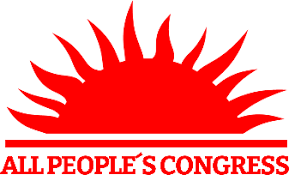The International Monetary Fund said on Friday that Sierra Leone had asked for a new 38-month Extended Credit Facility (ECF) arrangement worth about $253 million.
The Fund said its staff and the Sierra Leonean authorities had reached a staff-level agreement on economic policies and reforms that could be supported by the facility, which is subject to approval by the IMF’s Executive Board.
“The new ECF arrangement would aim to restore stability by bolstering debt sustainability, addressing fiscal dominance, bringing down inflation and rebuilding reserves,” the IMF said in a statement.
Advertisement · Scroll to continue
The arrangement would also support inclusive growth through reforms and help fight corruption, it added.
The Reuters Daily Briefing newsletter provides all the news you need to start your day.
Reporting by Anait Miridzhanian Editing by Alexander Winning
MoPED, UNFPA ensure essential services reach beneficiaries
With supervision from the Office of the Development Secretary in the Ministry of Planning and Economic Planning (MoPED), (MoPED), through its Population Unit and Monitoring & Evaluation (M&E) Directorate and the United Nations Population Fund (UNFPA), has ended a week-long joint monitoring exercise in four Districts nationwide. This effort, which aims at evaluating the implementation of UNFPA-supported programmes, forms part of the ministry’s 2024 Annual Work Plan and focuses on several critical areas such as sexual and reproductive health, family planning, and gender equality.
One of the key recommendations of the team is for the government of Sierra Leone to establish an adequate supply chain delivery and risk management system to ensure transportation of essential commodities from Districts to the last mile to primary health centre.
The visit is a follow-up strategy on IP activities to provide support for effective project result as well as verify the results reported by IPs.
Led by Daniel Banya Brima, Assistant Director and Head of M&E at MoPED and UNFPA team members Stephen Tengbeh, Administration and Finance Officer and Moi Swarray, Programme Analyst and M&E Officer, the joint visit assessed progress and ensured that Implementing Partners (IPs) are on track with their work plans. Eight Districts were targeted for the monitoring, including Port Loko, Kambia, Makeni, Bo and Kenema.
The monitoring exercise is crucial to provide first-hand qualitative and quantitative information on the progress, challenges and achievements of UNFPA-supported initiatives, as well as verify the results reported by implementing partners. Notably, the visit aimed at fostering collaboration, improve coordination and ensure transparency and accountability.
At the district level, the monitoring team engaged with local officials and program beneficiaries.
For example in Kambia District, the team met with Ishaka Issa Sesay, District Literacy Officer I and Sheik Umar Mansaray District Literacy Officer II among other representatives from the Ministry of Basic and Senior Secondary Education’s (MBSSE) Non-Formal Education Programme, which is reintegrating school dropouts, including teenage mothers, Persons with Disabilities, among others into the formal education system. The programme has so far benefitted over 500 girls and aims to reach 838 by the end of 2024, providing school materials and meals to support their education.
In Port Loko District, the team focused on Gender-Based Violence (GBV) interventions. Chernor J. Timbo, head of the Ministry of Gender and Children’s Affairs in Port Loko, highlighted the successes and challenges of addressing early and forced marriages in the region. The One-Stop Centre in Port Loko provides crucial psycho-social support and alternative care for survivors of GBV, while also raising-awareness and promoting legal protection for girls at risk.
The District Development Coordination Committee (DDCC) platform, which is hosted in all the 22 Local Councils nationwide, was noted as an important platform for discussing these issues.
During the joint monitoring visits to Kambia and Port Loko, Mr. Daniel Banya Brima, Assistant Director of M&E at MoPED, emphasized the importance of data management and documentation in programme implementation.
Following the joint monitoring visits, MoPED and UNFPA plan to engage stakeholders to discuss the findings, share insights, and recommend actions to improve programme outcomes. The monitoring reports will provide a detailed assessment of the current project status, highlighting gaps, successes and areas for improvement.
The Ministry’s collaboration with UNFPA and its implementing partners is a critical step towards ensuring that essential services and programmes aimed at improving population health, gender equality, and social well-being are effectively delivered across Sierra Leone.













